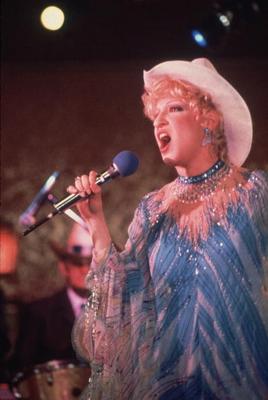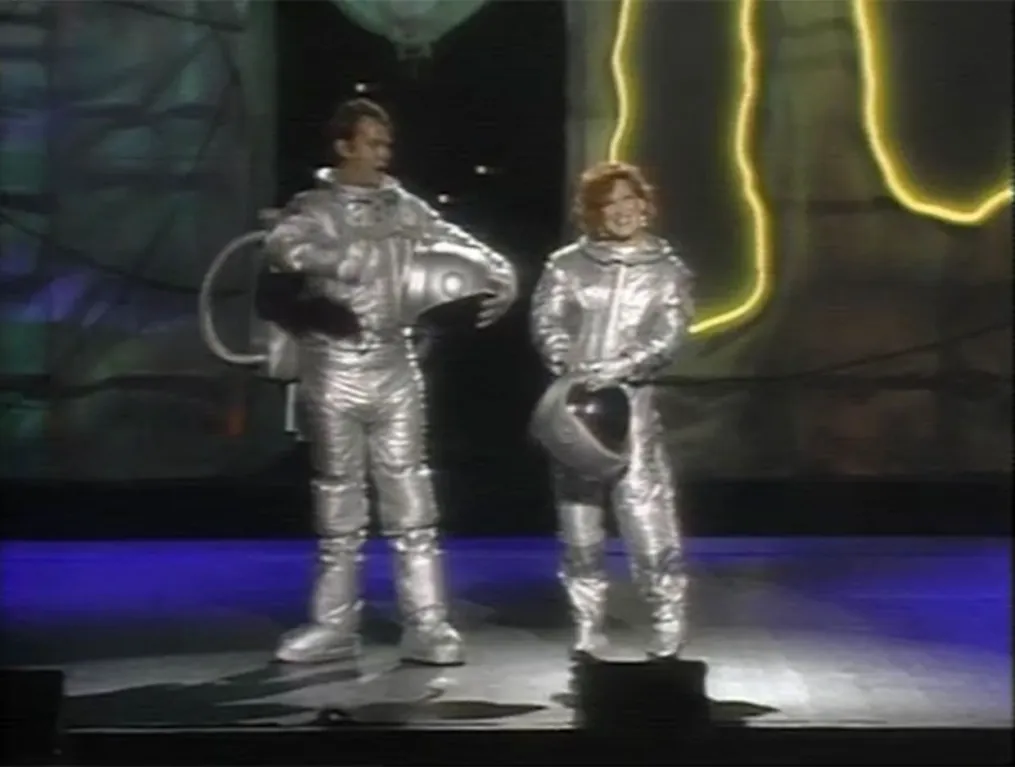Morning File: The siren’s call of karaoke
Tuesday, July 25, 2006
By Peter Leo, Pittsburgh Post-Gazette
Matt Freed, Post-Gazette

Karaoke in China: I did it Mao’s way
Censors in China, who have to be the most overworked people in the world, are turning their attention to the nation’s wildly popular karaoke parlors. The Ministry of Culture wants to prevent “unhealthy” songs from being belted out in public, the state-run Beijing News reported last week. It didn’t specify which songs, but The Los Angeles Times pointed out that a “Top 10 Unclean Song Contest” held by Heaven and Earth People magazine (real title) provides clues. Two sizzling examples: “Boat Tracker’s Love,” which flaunts such racy lines as, “I can’t wait for the sun to set so you can kiss me as much as you want to,” and “Office,” with this steamy example of erotic lyricism: “We spend a lot of nights together as you cheat on your husband by telling him you’re working overtime.”
The search for meaning
Karaoke is a Japanese word translated variously as “drunken humiliation,” “tone deaf” or “It seemed like a good idea at the time.” Actually, it means “empty orchestra,” and for those of you who are out of it, it’s a recorded song with no vocals that allows you to grab a mic and be Sinatra or Cher with professional accompaniment. Lyrics are displayed on a video, sometimes with color changes synchronized with the music. If you have on-demand cable TV, you can try karaoke in the privacy of your own home, thus extending your musical reach beyond the shower.
How it all began
Karaoke started in Japan in 1971 when the light bulb went off for Daisuke Inoue. He was a musically limited drummer with a rare gift for playing for tone-deaf customers, helping them sing along with slow tempos and simplified tunes. One day a regular asked him to make an instrumental tape for use on a company excursion. Soon after, Daisuke bundled together small amplifiers and car stereos, music tapes, a microphone and coin box. The result was the world’s first karaoke machine.
In 2004 he was awarded the tongue-in-cheek Ig Nobel Peace Prize for inventing karaoke, “thereby providing an entirely new way for people to learn to tolerate each other.” That was a come-down from being named one of Time magazine’s 20 most influential Asians of the 20th century — along with Gandhi, the Dalai Lama and Mao Zedong.
Singing inside the box
Karaoke spread rapidly to other parts of the world, arriving on our shores in the 1980s. The usual venue is a bar, which affords the opportunity to make a fool of yourself before strangers. But in the mid-80s, the Japanese pioneered box or private-room karaoke — venues where you can rent your own space, so you can embarrass yourself before 20 or fewer people you know. A big karaoke-box building in Tokyo was featured in the movie “Lost in Translation.”
Banned in San Mateo
Since karaoke boxes are closed-door facilities, they’ve been objects of concern as potential havens for dirty doings and wild teen behavior. Authorities in Asia are increasingly scrutinizing karaoke, not just for sexy songs but also for illegal drugs and prostitution.
Two years ago, after private-room karaoke arrived in California, San Mateo banned it because of alcohol violations, prostitution and shootings. But city officials in the Silicon Valley town changed their tune after complaints that the ban was insensitive to a popular Asian cultural institution in a county where one in four residents is of Asian descent. The town stipulated that the rooms include windows, bright lighting and doors that do not lock.
Regrets he’s had a few
In May, Englishman Michael Kelly, 30, was about to take the mic at a social club in Newcastle upon Tyne when the police roared in and hauled him off. A pre-emptive strike on a lousy singer? Not exactly. Kelly was on the lam after a jail escape, but the pull of karaoke night was just too strong, The Sun (England) reported. One member of the audience joked: “We wish the police had arrested some of the other singers because they were so bad.” Kelly’s choice of song: Frank Sinatra’s “My Way.”
Everyone’s a critic
More evidence from England that karaoke can be dangerous: Stephen Chatterley, 50, was gearing up for an evening of crooning at the Plough in Ormskirk one recent night when a man took exception to his opening number, a rendition of Barry White’s “My First, My Last, My Everything.” So he dragged poor Stephen outside and knocked him unconscious. “I was singing and he just started taking the mic,” Mr. Chatterley said. “The next thing I remember is Southport hospital.”
He was treated for cuts and bruises. “I’ve got a thick neck so when he kicked me in the head it wasn’t as bad as it might have been,” he told The Liverpool Daily Echo. “What harm was I doing? Even if I was a bad singer, I cannot believe anyone would leave me for dead in an alleyway.”
Sock it to me
Last year the Opinion Research Corp. conducted a national poll to determine the most popular karaoke songs. Among the winners: Joan Jett’s “I Love Rock ‘n’ Roll”, the Righteous Brothers’ “You’ve Lost That Lovin’ Feelin'”, Sinatra’s “New York, New York,” and Garth Brooks’ “Friends in Low Places.” No. 1: Aretha Franklin’s “Respect.”
The most overdone karaoke songs
From AustinSings.com, “The Central Texas Karaoke Connection!”
“American Pie,” Don McLean. People hate it when you take a classic and butcher it. It’s way too long for karaoke.
“Bohemian Rhapsody,” Queen. It took Freddie Mercury months to perfect this. And you want to try it in one night?
“Crazy,” Patsy Cline. Great song. Folks have just heard it so much.
“The Dance,” Garth Brooks. Only one man should be allowed to sing this.
“Delta Dawn,” Tanya Tucker. Why do you torture us?
“I Got You Babe,” Sonny & Cher. Hasn’t this song been done to death?
“My Ding-a-Ling,” Chuck Berry. Chuck wrote many great songs. This isn’t one of them.
“The Rose,” Bette Midler. No explanation needed.
The siren song of karaoke
Scott C. on MontrealMirror.com: “I think it’s fair to say that most of us have sung in the shower at one point or another, completely oblivious to the fact that the neighbors were howling with laughter. Karaoke is not so different. You get up on stage without an ounce of talent, feeling quite naked except for your microphone, and belt out a heartfelt interpretation of Culture Club’s “Do You Really Want to Hurt Me?” You would hear all the catcalls and snickering, but you’re too busy trying to nail the emotional nuance of the song. The fact that you can’t sing at all is just as important as it is inconsequential. That’s the beauty of karaoke.
“Even with all the fluff and cheese usually associated with karaoke culture, it is a phenomenon that has the ability to dissolve the inhibitions of the worst singer and make them a star, even if it’s only for a moment. Pick up the mic, you’ll see what I mean.”






